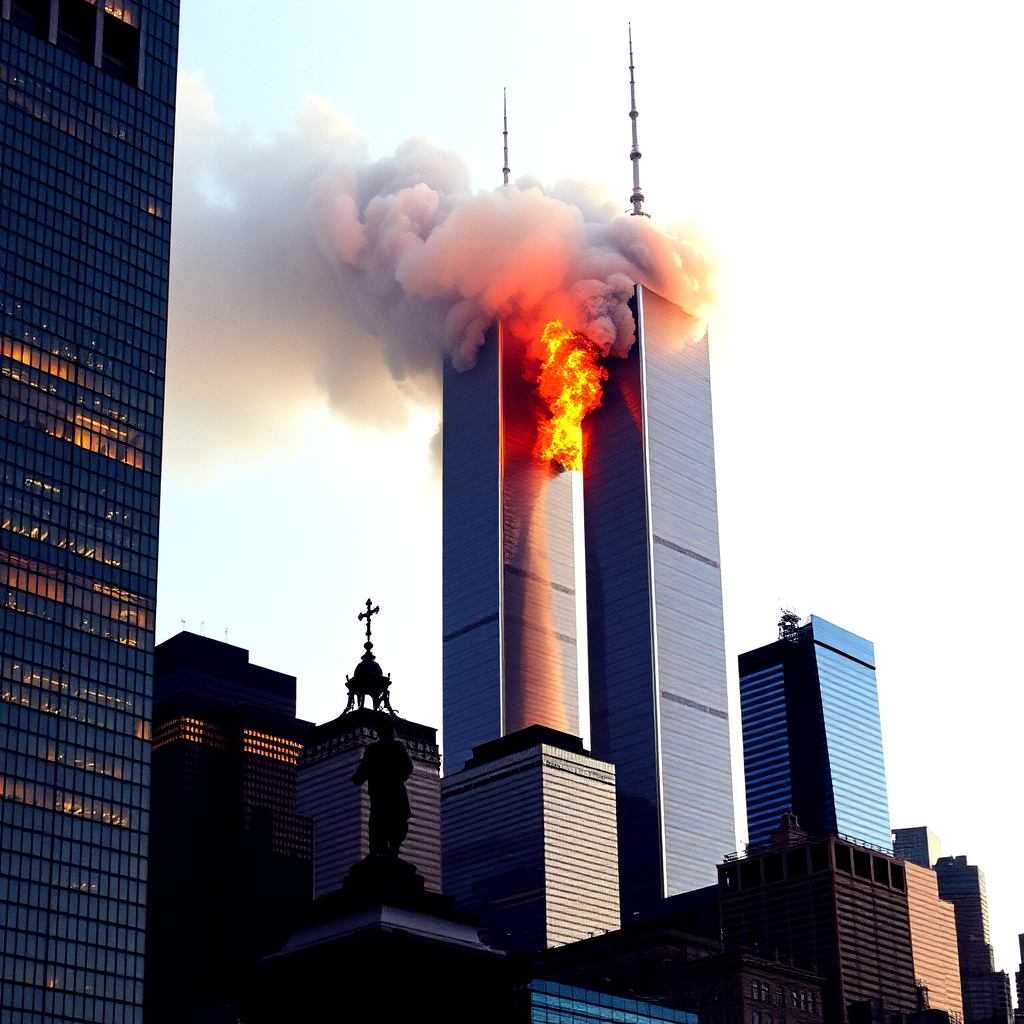The Veil of Tragedy: Unpacking 9/11
On September 11, 2001, a tragic event unfolded that forever altered the course of history. Nineteen militants associated with the extremist group al-Qaddafi hijacked four airplanes, executing a meticulously planned and horrifying attack on the United States. Two planes struck the Twin Towers of the World Trade Center, and another aimed at the Pentagon, marking a day etched in our memories. Almost 3,000 innocent lives were lost, transforming a normal Tuesday into a poignant reminder of both vulnerability and resilience.
In the aftermath, we witnessed a brave response from first responders, including firefighters, EMS, and countless volunteers who risked their own safety to save others. Their unwavering courage shone through in the face of unimaginable loss. This moment, while marked by terror, sparked a global outpouring of love and support, showcasing humanity’s inherent goodness. As we remember 9/11, it’s essential to reflect on these dualities—the dark shadows of evil and the radiance of compassion.
Justice in Response: An Ongoing Mission
Following the attacks, the U.S. government initiated a multifaceted response aimed at combating terrorism and seeking justice for the victims. This endeavor raised crucial discussions about security, civil liberties, and the implications of foreign policy. It was a moment that defined the presidency of George W. Bush, as the nation came together to address threats—both foreign and domestic. The purpose of these actions was straightforward: to ensure a safe and secure environment for future generations, a mission we still grapple with today.
However, while we acknowledge efforts toward justice, it’s vital to remain vigilant about the methods employed. As we reflect on the consequences of our responses, we are reminded that blind retaliation rarely leads to lasting peace. Throughout history, cycles of violence have shown us the ineffectiveness of revenge. Instead, we should advocate for a strategy grounded in wisdom and love, acknowledging that every action has reverberating effects. In this context, we can find pathways toward healing and understanding that transcend the initial hurt.
Love in the Face of Evil: Lessons for Humanity
In a world burdened by the reality of evil, the teachings of Christianity beckon us to respond with love rather than hatred. Our remembrance of 9/11 serves not only as a tribute to the victims but also as a call to embody compassion in our actions, especially toward those we may see as adversaries. As individuals, our task is to navigate the complexities of forgiveness and justice without losing sight of what binds us: the capacity to love one another.
The teachings remind us that forgiveness does not equate to condoning wrongdoings; rather, it signifies a commitment to healing and unity. By choosing love over vengeance, we resonate with a higher purpose, reflecting the essence of our shared humanity. The heartbreaking reality of 9/11 must inspire a deliberate intention to foster peace, to build bridges rather than walls, and to serve those in need—both within our communities and beyond. By embracing this mission, we honor the day that changed us forever and affirm our commitment to a just and loving world.

